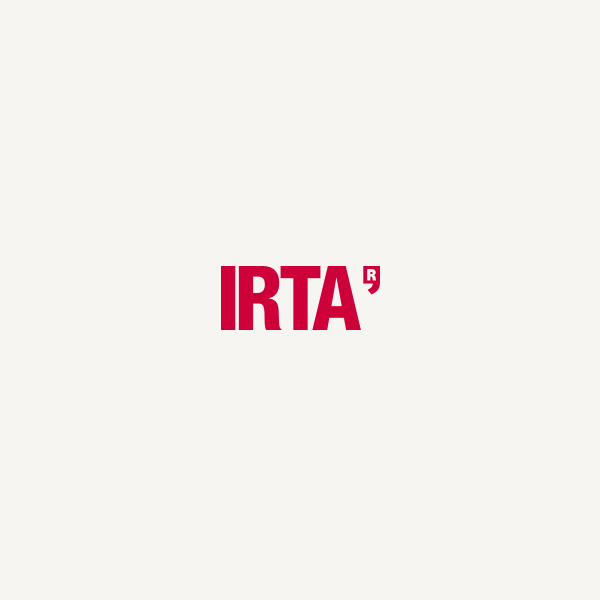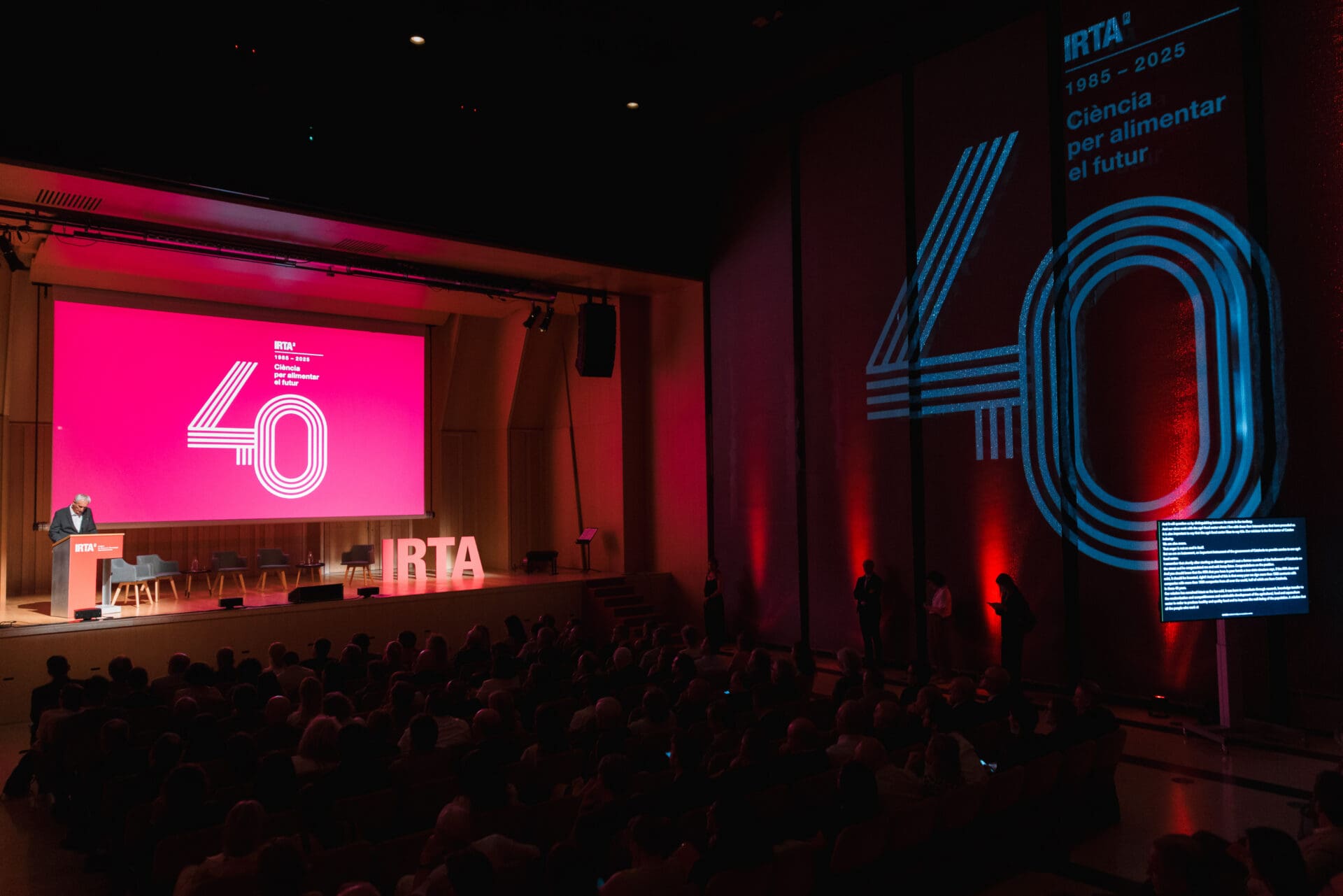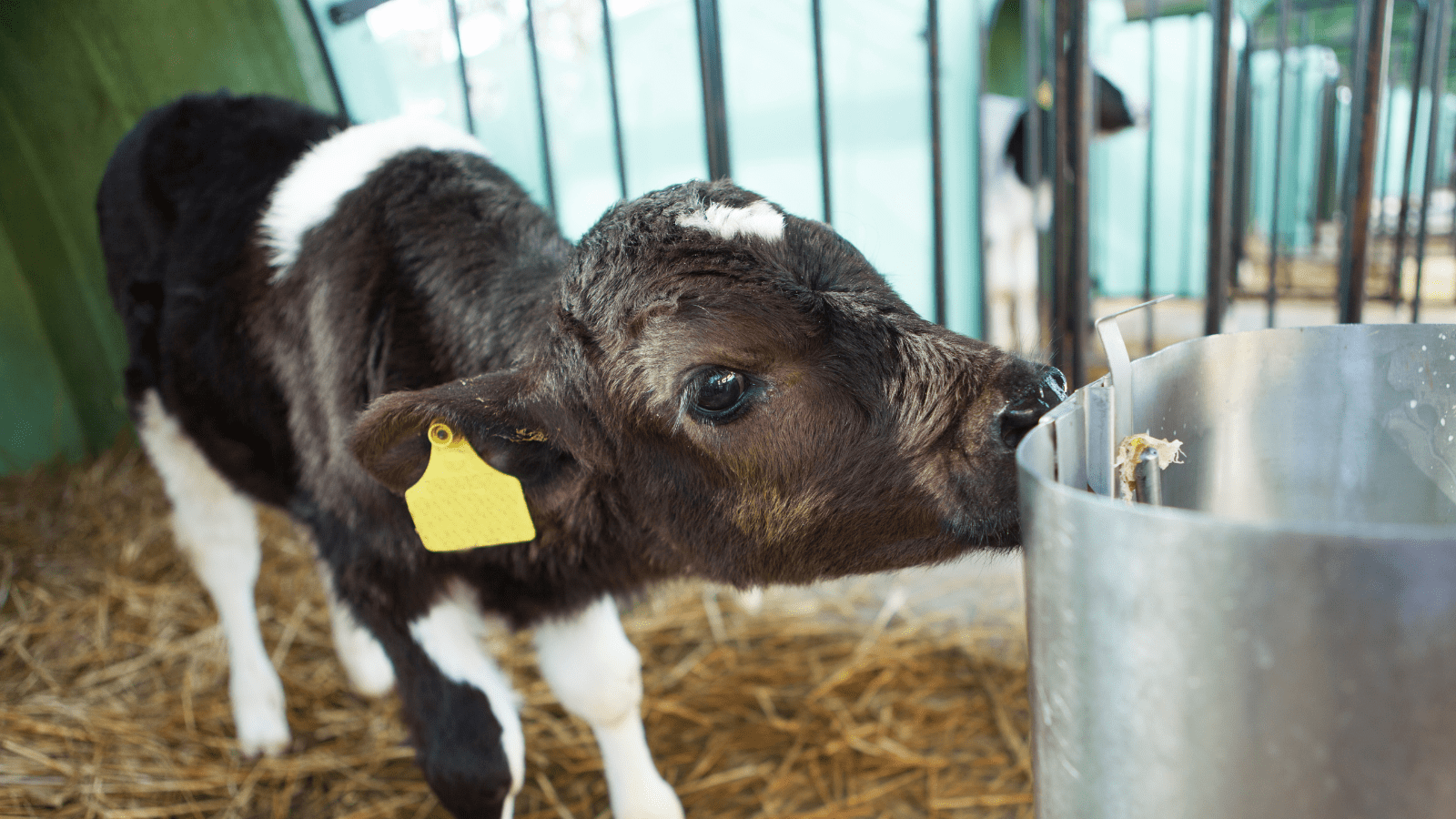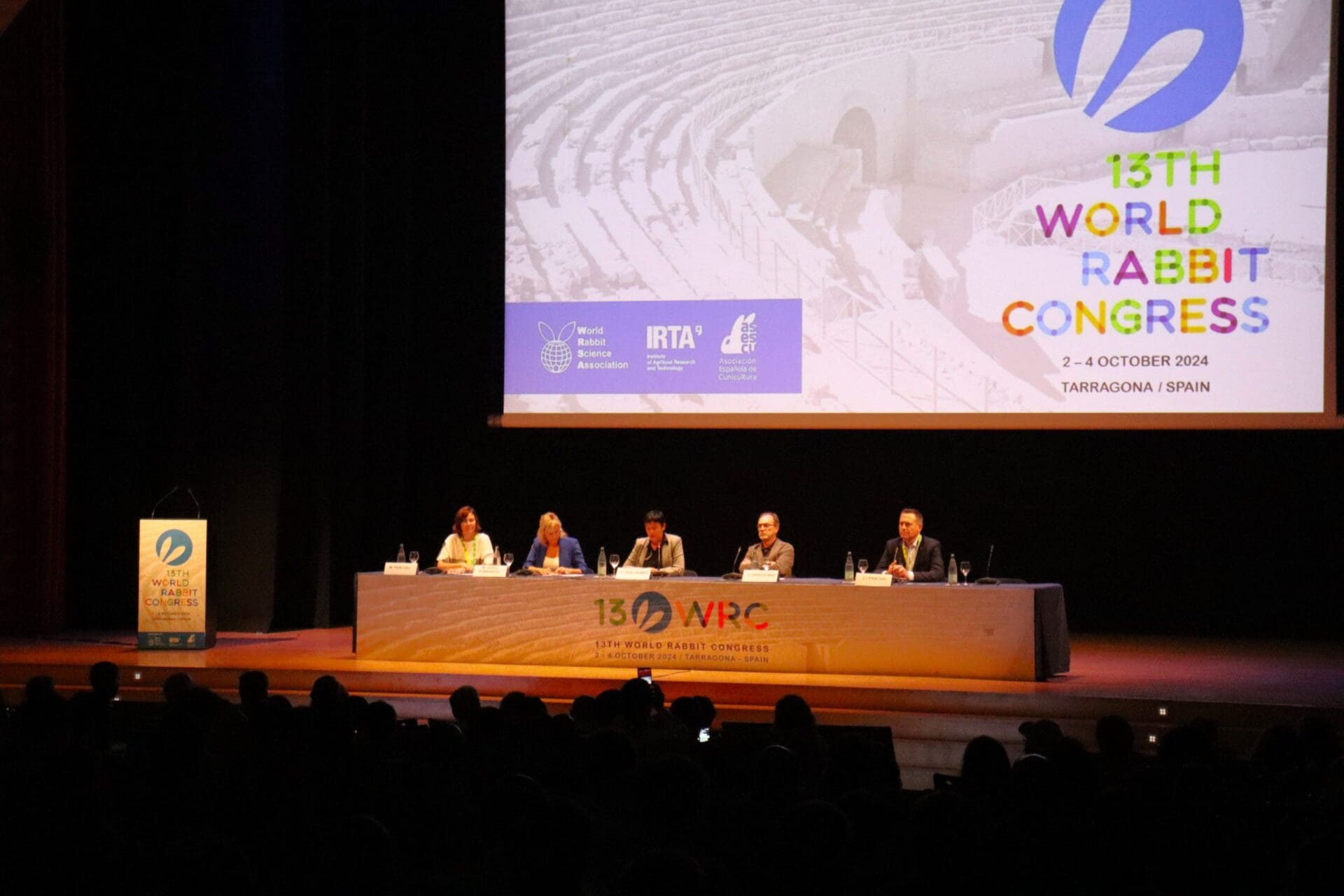
This week the World Rabbit Congress 2024 (WRC) was held in Tarragona, an international reference event for the rabbit farming sector, which during these days will exchange knowledge and discuss the present and future challenges of the rabbit production sector.
Choosing the port city of Tarragona, with its history and proximity to the rabbit production centres in Catalonia, was a logical decision for this event, within its Congress Centre. And this year, IRTA, together with ASESCU (The Spanish Rabbit Farming Association) and commissioned by the World Rabbit Science Association (WRSA), has been in charge of organising this important congress.
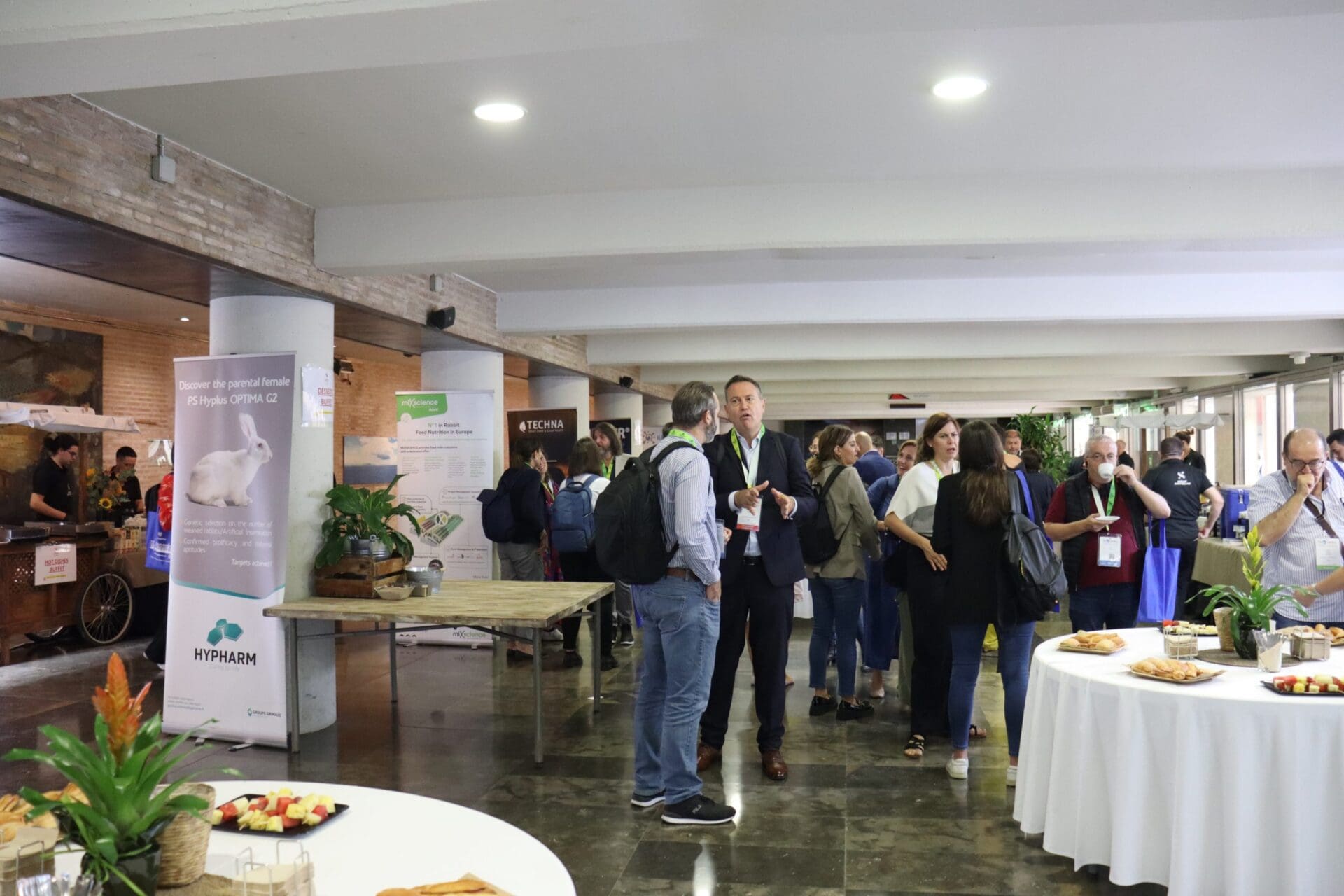
With more than 20 years of experience in improving rabbit production through scientific research and knowledge transfer, IRTA and its rabbit breeding team, within the Animal Breeding and Genetics programme, are recognised allies of this sector, which is so important and has such a long tradition in our country. Mariam Pascual, a specialist in rabbit breeding at IRTA and in charge of organising this WRC, explains the Institute's link with the rabbit breeding sector: ‘We are very proud to be able to organise this important congress. At IRTA, we have been working on rabbit farming since before the 1980s, always alongside this sector, which is not as large as that of other types of meat. Our research has been linked to the improvement of issues such as sustainability and efficiency, to the genetic improvement of production lines and other needs of the sector, such as the technical and economic management of farms, the reduction of the use of antibiotics or the study of the intestinal microbiota’.
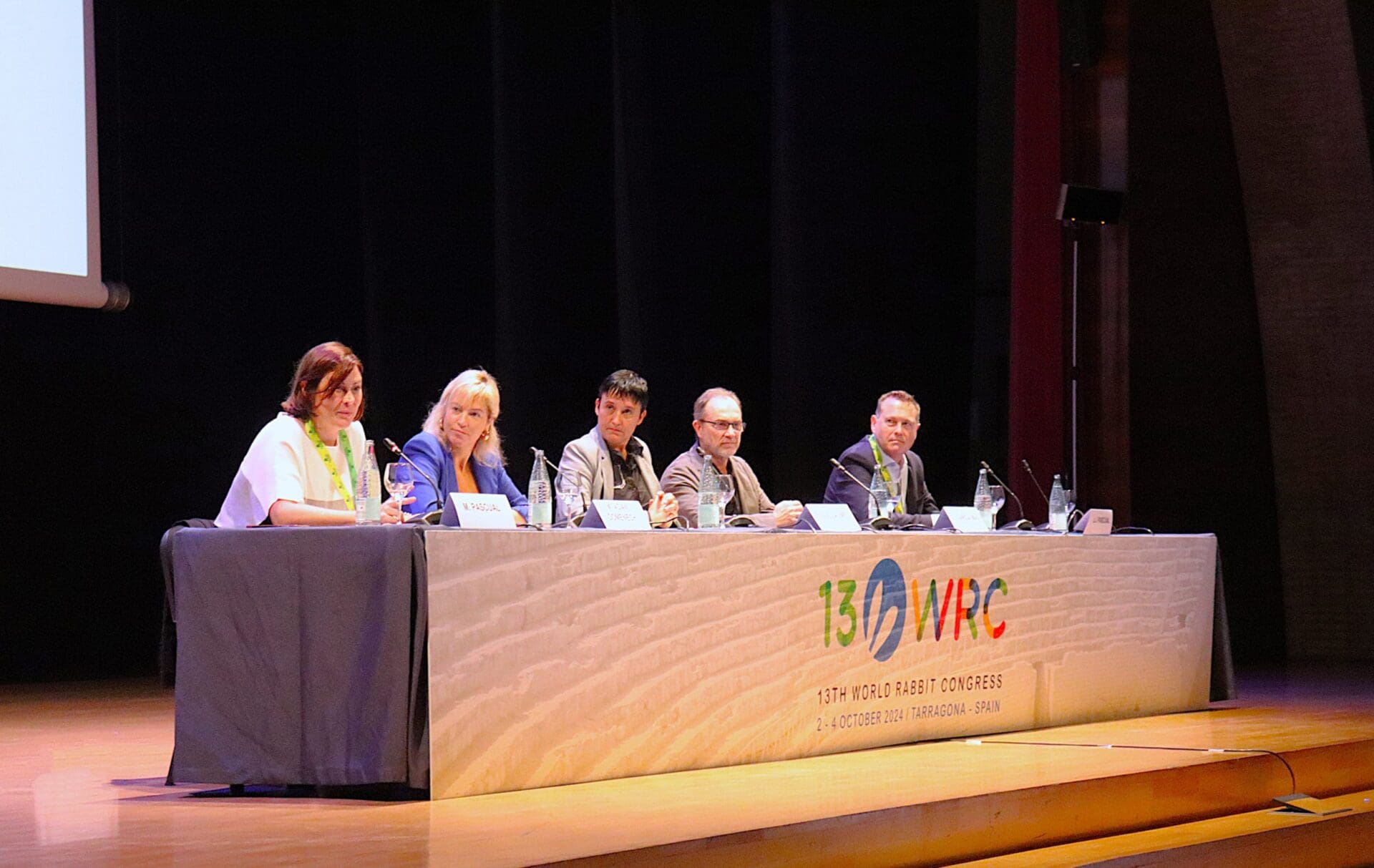
The inauguration was led by Mariam herself and Elisenda Guillaumes (Director General of Agriculture and Livestock), Montserrat Adan (First Deputy Mayor and Councillor for Tourism, Economic Promotion and Trade of Tarragona City Council), Juan José Pascual Amorós (President of ASESCU) and Jordi Garcia-Mas, Scientific Director of IRTA.
The breeding and exploitation of rabbit meat has a very long tradition in the Iberian Peninsula and other countries in southern Europe, which can be traced back more than 2,000 years to the ancient Romans. Rabbit meat is also low in cholesterol and sodium, and rich in protein and fibre, ideal for low-fat diets. It has a high protein content of high biological value, higher than the average of other meats, and is a good source of B vitamins, especially B12 and niacin.
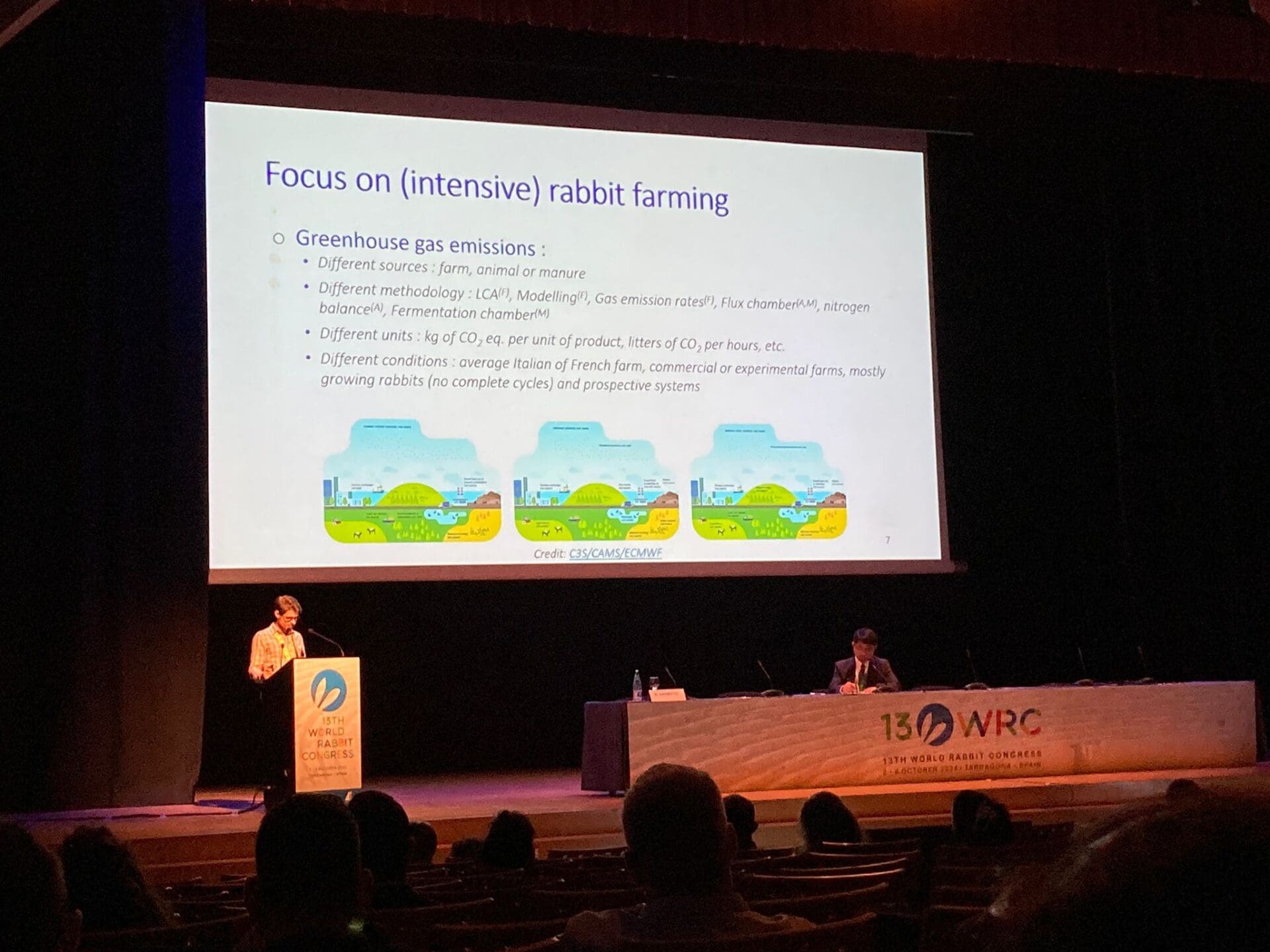
However, in recent years the sector is facing a number of serious problems. Production costs have risen, and production is falling, accompanied by the closure of farms that cannot afford the costs, and whose second generations do not want to inherit their parents' business. In the case of rabbit, there is also a fall in consumption due to consumers who do not find the right presentation, who do not know enough about the properties of this meat, or who identify the rabbit more as a pet.
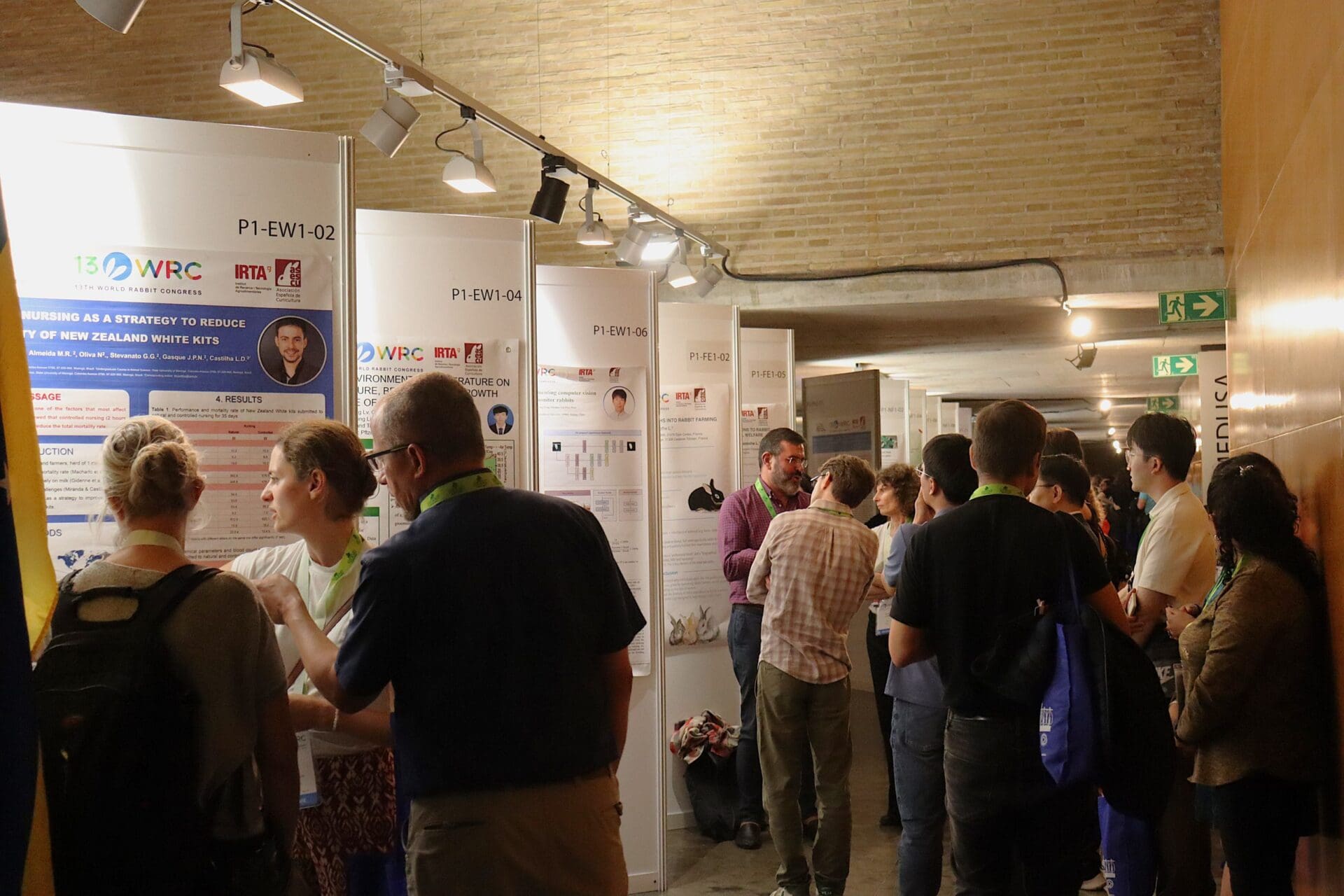
One of the most topical issues is the European Commission's decision to phase out the use of cages, with the aim of banning their use completely by 2027. These measures, born out of a citizens' initiative, nevertheless entail major challenges, such as the economic viability of farms, or even the actual achievement of better animal welfare. An example of the real complexity of an easy solution is demonstrated by the results of the PARCCUN project.
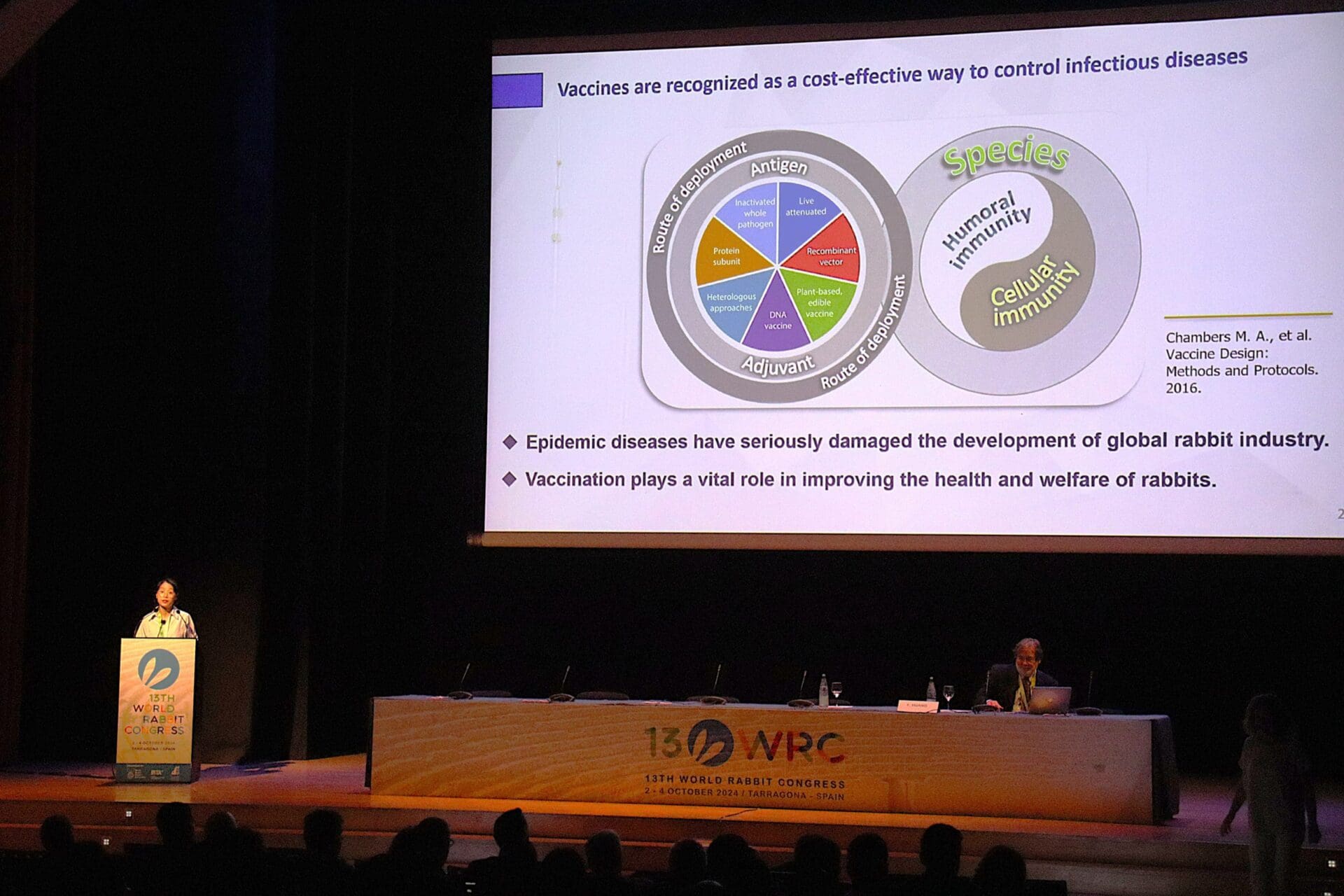
In this sense, Pascual assures that ‘at IRTA we are currently testing different techniques to find a solution to the need for alternative housing for farm rabbits. The rabbit sector needs the help of the administration and research, and in this sense IRTA can count on our support’.
This and other challenges have been discussed during these days at the WRC, with the presence of many professionals and scientists from China, the world's main rabbit consumer. Attendees were also able to enjoy presentations in various areas: nutrition, pathology, genetics, reproduction, welfare, economics, biology, product quality and others. In addition to an exhibition of scientific posters and four round tables focused on key issues such as animal welfare, environmental impact and reducing the use of antibiotics. On behalf of IRTA, researchers Mariam Pascual, Miriam Piles, Raquel Quintanilla and Juan Pablo Sanchez gave several sessions.
You can find more details of this congress on its website: www.wrc2024.com.
